Harness the numerous zinc benefits, an essential mineral pivotal for overall health. Playing a crucial role in supporting the immune system, slowing aging, and defending against illness, zinc has been identified as a critical player in maintaining well-being. Research underscores that a zinc deficiency can lead to various diseases and conditions. Particularly noteworthy is the surge in popularity of zinc supplements, which gained momentum, especially after the Covid-19 pandemic. Shockingly, a significant percentage of the global population, with higher rates in Asia, grapples with zinc deficiency.
Adequate zinc intake can boost energy, improve mood, and enhance physical performance. Furthermore, zinc plays a role in controlling type-2 diabetes, maintaining optimal vision, and promoting skin health. It also reduces inflammation, acts as an antioxidant, and supports gut health. Including zinc-rich foods in the diet is essential for overall well-being, and supplementation may be necessary for those with specific health conditions or deficiencies.
Key Takeaways:
- Zinc is an essential mineral that supports the immune system and defends against illness.
- Zinc supplements have gained popularity and can naturally boost energy and improve mood.
- Including zinc-rich foods in the diet is essential for overall well-being.
- Supplementation may be necessary for those with specific health conditions or deficiencies.
Disclaimer: This blog contains affiliate links, and I may receive a commission if you purchase through them.
Table of Contents
The Importance of Zinc for Immune Function
Zinc is an essential mineral that supports the immune system and protects against infection. It helps white blood cells produce antibodies that fight off viruses and bacteria, strengthening the body’s natural defense mechanisms. Adequate zinc intake is essential for women, who often have increased nutrient needs due to pregnancy and lactation. Men can also benefit from zinc supplementation as it naturally boosts testosterone levels, improving energy, mood, and physical performance.
Zinc’s impact on immune function is vital for both men and women in promoting overall health and well-being. By ensuring sufficient zinc levels in the body, individuals can enhance their immune response, lower the risk of illness, and enjoy optimal health.
Critical Zinc Benefits for Immune Function:
- Strengthening the immune system
- Enhancing antibody production
- Protecting against infections
- Boosting testosterone levels
- Improving energy, mood, and physical performance
It is important to note that while zinc supplementation can be beneficial, it is crucial to consult with a healthcare professional for personalized guidance. By incorporating zinc-rich foods into their diet and considering supplementation when necessary, individuals can optimize their immune function and overall well-being.
| Zinc Benefits for Women | Zinc Benefits for Men |
| Supports healthy pregnancy and lactation | Enhances testosterone production |
| Strengthens the immune system | Improves energy levels |
| Promotes skin health and wound healing | Enhances mood and mental performance |
Zinc and Mental Health
Zinc supplements have been found to offer potential benefits for mental health. Various studies have indicated that zinc supplementation can help reduce symptoms of depression and anxiety by regulating neurotransmitter levels in the brain. This essential mineral has also shown promise in improving cognitive function and memory, particularly in individuals with Alzheimer’s disease.
Zinc’s antioxidant properties and role in reducing inflammation contribute to overall mental well-being. By neutralizing harmful free radicals and promoting a healthy inflammatory response, zinc may help protect against oxidative stress and support a balanced mood.
When considering zinc supplements for mental health support, consulting with a healthcare professional is essential. They can help determine the appropriate dosage and ensure it is safe and effective for individual needs.
Aside from supplements, incorporating zinc-rich foods into the diet is another way to promote mental well-being. Some dietary sources of zinc include:
- Oysters
- Beef
- Lamb
- Pork
- Chicken
- Legumes
- Nuts and seeds
- Whole grains
- Dairy products
Quote:
“Zinc supplementation has shown promising results in reducing symptoms of depression and anxiety, improving cognitive function, and supporting overall mental well-being.” – Dr. Elizabeth Thompson, Neurologist.
Individuals can take proactive steps toward supporting their mental health and well-being by incorporating these zinc-rich foods or considering zinc supplementation under professional guidance.
Enhancing Skin Health with Zinc
Zinc is a crucial mineral that offers numerous benefits for maintaining healthy skin. Its properties extend beyond wound healing and tissue formation to include the ability to reduce inflammation. You can achieve a youthful appearance and prevent dryness by incorporating zinc into your skincare regimen. This is especially important for women who prioritize maintaining glowing and healthy skin.
Zinc’s anti-inflammatory properties can help treat common skin conditions such as acne, eczema, and psoriasis. Its ability to reduce inflammation can help soothe irritated skin, minimize redness, and promote healing. Zinc also acts as a mild astringent, tightening pores and regulating oil production, leading to a clearer complexion.
“Zinc’s anti-inflammatory properties make it an effective ingredient for combating common skin concerns.”
Moreover, zinc is a powerful antioxidant that helps protect against environmental stressors and free radicals, preventing premature aging. By neutralizing harmful molecules, zinc preserves collagen and elastin fibers, essential for maintaining skin elasticity and firmness.
While zinc-rich foods such as oysters, red meat, poultry, beans, nuts, and whole grains can support skin health, zinc supplementation can provide an additional boost. Taking zinc supplements under the guidance of a healthcare professional can help ensure that you meet your daily zinc requirements and enjoy the full benefits it offers for your skin.
Summary:
Zinc is a vital mineral for enhancing skin health and addressing common skin conditions. Its anti-inflammatory properties soothe irritated skin, while its antioxidant characteristics protect against premature aging. Incorporating zinc-rich foods into your diet and considering supplementation can support optimal skin health. Women, in particular, can benefit from zinc’s skin-enhancing effects, promoting a glowing and youthful complexion.
The Role of Zinc in Preventing Chronic Illnesses
Research suggests that zinc may be crucial in reducing the risk of chronic illnesses such as heart disease, cancer, and diabetes. Adequate zinc intake can have significant benefits for overall health and well-being. Here are some of the ways zinc can help prevent chronic illnesses:
Reducing Inflammation
Zinc has anti-inflammatory properties, which can help protect against chronic inflammation. Chronic inflammation is linked to various diseases, including heart disease, diabetes, and certain types of cancer. Adequate zinc intake may help regulate inflammatory processes in the body, promoting a healthier immune response and reducing the risk of chronic illnesses.
Protecting Against Oxidative Stress
Zinc is an antioxidant and helps protect the body’s cells from oxidative stress. Oxidative stress can contribute to the development of chronic illnesses, including cardiovascular diseases and certain types of cancer. By neutralizing harmful free radicals, zinc can help prevent cell damage and support overall health.
Regulating Hormone Production
Zinc regulates hormone production in the body. Hormonal imbalances can increase the risk of chronic illnesses, such as diabetes and certain types of cancer. Adequate zinc intake can help maintain hormonal balance, promote optimal health and reduce the risk of these diseases.
Lowering Blood Pressure and Cholesterol Levels
Studies have suggested that zinc supplementation may help lower blood pressure and cholesterol levels. High blood pressure and elevated cholesterol levels are significant risk factors for heart disease. By contributing to cardiovascular health, zinc can reduce the risk of heart disease and other related chronic illnesses.
| Chronic Illness | Zinc’s Potential Benefits |
| Heart Disease | It reduces inflammation, protects against oxidative stress, and helps regulate hormone production. |
| Cancer | It reduces inflammation, acts as an antioxidant, regulates hormone production, and protects against certain types of cancer. |
| Diabetes | Reduces inflammation, protects against oxidative stress, helps regulate hormone production. |
Incorporating zinc-rich foods into the diet or taking zinc supplements under the supervision of a healthcare professional can be crucial for preventing chronic illnesses and maintaining optimal health. However, individual needs may vary, and consulting with a healthcare provider is recommended before starting any supplementation regimen.
Dietary Sources of Zinc
When meeting your recommended zinc intake, numerous dietary sources can provide the necessary amount for both men and women. Including a variety of zinc-rich foods in your diet can help unlock the benefits of this essential mineral. Here are some key sources of zinc:
- Seafood: Oysters are one of the best sources of zinc, containing significantly higher amounts than other food sources.
- Red meat: Beef and lamb are rich in zinc and can be incorporated into your meals to boost your intake.
- Poultry: Chicken and turkey are lean sources of zinc that can be included in a balanced diet.
- Beans: Legumes like chickpeas, kidney beans, and lentils provide good zinc and other essential nutrients.
- Nuts: Almonds, cashews, and peanuts are delicious and packed with zinc.
- Dairy products: Milk, cheese, and yogurt are calcium-rich foods that provide a decent amount of zinc.
- Whole grains: Incorporating entire grains like quinoa, brown rice, and oats into your meals can increase your zinc intake.
By including these foods in your diet, you can ensure you are getting an adequate amount of zinc to support your overall health and well-being.
| Food Source | Zinc Content per 100g |
| Oysters | 16-182mg |
| Beef (cooked) | 4-10mg |
| Chicken (cooked) | 1-2mg |
| Kidney beans (cooked) | 0.2-0.6mg |
| Almonds | 2-3mg |
| Milk (whole) | 0.4mg |
| Brown rice (cooked) | 0.9mg |
These values may vary depending on the specific variety, preparation method, and other factors. It’s always beneficial to check the nutritional information on food labels or consult a healthcare professional for personalized advice.
Tips for Incorporating More Zinc into Your Diet
To maximize the benefits of zinc, it is crucial to ensure an adequate intake of this essential mineral in your diet. Incorporating the right foods can naturally boost your zinc consumption and support your overall health and well-being.
1. Start with Whole Grains
Whole grains like oats, wheat germ, and quinoa are nutritious and zinc-rich. Incorporating these grains into your meals can provide a good amount of this essential mineral. Enjoy a hearty bowl of oatmeal for breakfast or add quinoa to your salads or side dishes.
2. Add Beans and Lentils
Legumes such as beans and lentils are an excellent source of plant-based protein and contain significant amounts of zinc. Including these nutritious ingredients in your meals can help boost your zinc intake. Add beans to your soups, stews, and salads, or experiment with lentils in delicious curries or grain bowls.
3. Incorporate Seafood, Meats, and Poultry
Seafood lovers can rejoice, as options like oysters, shrimp, and crab are delicious and packed with zinc. Red meat and poultry are also excellent sources of this essential mineral. Add protein-rich foods to your meals and snacks to increase your zinc consumption.
4. Snack on Nuts and Dairy Products
Nuts like cashews, almonds, and peanuts are convenient and nutritious snacks containing zinc. Additionally, dairy products like cheese and yogurt can be a delicious way to incorporate more zinc into your diet. Enjoy a handful of nuts or indulge in a yogurt parfait for a zinc-rich snack.
When adjusting your diet to incorporate more zinc, it is important to consider individual needs and consult a healthcare professional. They can provide personalized guidance and ensure you meet your specific nutritional requirements. While dietary sources are generally preferred, zinc supplements may be necessary in certain cases but should always be taken under professional supervision.
The Importance of Zinc Supplementation
Incorporating zinc into your diet through natural sources is generally recommended for overall well-being. However, there are specific situations where supplementation may be necessary to ensure adequate zinc intake and reap its benefits.
Individuals recovering from surgery on the digestive system, such as ulcerative colitis or Crohn’s disease, may require zinc supplementation to support their healing process.
Zinc supplements may also benefit those with chronic liver disease, as the condition can deplete the body’s zinc stores.
Vegetarians, especially those who do not consume a variety of plant-based protein sources rich in zinc, may consider zinc supplements to meet their daily needs.
However, consulting with a healthcare provider before incorporating zinc supplements into your routine is crucial. Excessive zinc intake can be harmful and may lead to adverse effects.
Meal and Snack Ideas to Increase Zinc Intake
There are numerous ways to incorporate more zinc into your diet through meals and snacks. You can easily increase your zinc intake by including zinc-rich foods in your recipes or consuming them as snacks. Here are some excellent sources of zinc that you can consider:
- Lean beef
- Ricotta cheese
- Yogurt
- Beans
- Lentils
- Turkey
These ingredients can be used in a variety of nutritious recipes that are rich in zinc. Consider trying these delicious meal ideas:
- Banana Whole Grain Griddle Cakes
- Black Bean Couscous Salad
- Baked Eggs with Lentils
- Beef and Lentil Burgers
These dishes provide a tasty and satisfying way to enjoy your meals and offer the added benefits of zinc. Incorporating these meal and snack ideas into your diet can help you increase your zinc intake and reap the benefits for women and men.
Supplements Zinc Ideas to Improve Your Health
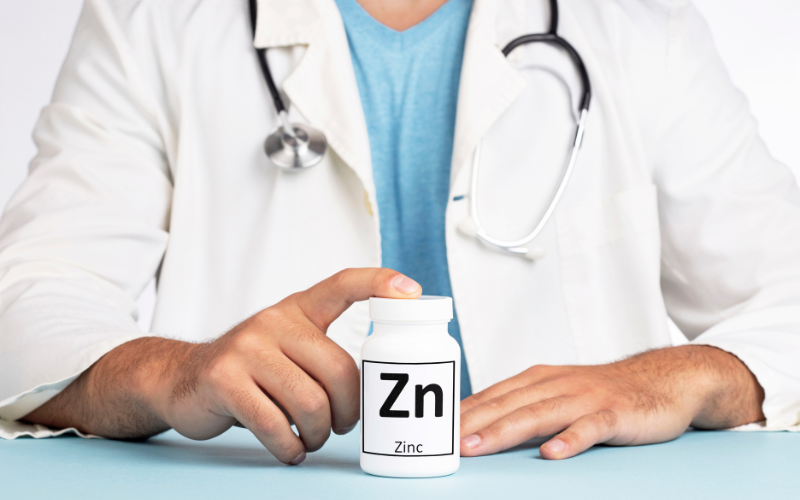
Enhance your well-being by considering zinc supplements from a trusted source. These supplements can be crucial in supporting your immune system, promoting skin health, and aiding in properly functioning various bodily processes.
Opting for supplements from reputable and reliable sources ensures you receive high-quality formulations with accurate dosages. Prioritize your health by choosing zinc supplements that adhere to stringent quality standards and are backed by positive reviews and recommendations. Don’t forget to consult a healthcare professional for personalized advice and dosage recommendations tailored to your needs.
For further information on additional supplements, please refer to the following blogs:
Unlocking K2 D3 Benefits for Bone and Heart Health
8 Powerful Weight Loss Supplements: Your Ultimate Guide
Antiaging Supplements: How NAD, NMN, and SIRT 6 Activators Battle Aging
Conclusion
Zinc is a vital mineral that plays a crucial role in promoting overall health and well-being. Its benefits extend to immune function, mental health, skin health, and the prevention of chronic illnesses. Including zinc-rich foods like seafood, red meat, poultry, beans, nuts, and whole grains in a balanced diet can help individuals meet their zinc requirements.
In some instances, zinc supplementation may be necessary, but consulting with a healthcare professional for guidance is important. They can provide personalized advice based on individual needs and ensure safe and optimal supplementation.
By unlocking zinc’s benefits, both men and women can optimize their health and enhance their quality of life. Whether supporting the immune system, improving mental well-being, promoting healthy skin, or protecting against chronic illnesses, zinc plays a significant role in maintaining overall wellness. Make zinc a cornerstone of your health regimen and reap its numerous benefits.
FAQ
What are the benefits of zinc for overall health?
Zinc promotes immune system function, slows aging, defends against illness, boosts energy, improves mood, enhances physical performance, controls type-2 diabetes, maintains optimal vision, promotes skin health, reduces inflammation, acts as an antioxidant, and supports gut health.
How does zinc benefit the immune system?
Zinc supports the production of antibodies by white blood cells, helping to fight off viruses and bacteria and protect against infection.
Who can benefit from zinc supplementation?
Zinc supplementation benefits both men and women. It naturally boosts testosterone levels in men and supports increased nutrient needs in women.
Can zinc benefit mental health?
Zinc supplementation may reduce symptoms of depression and anxiety, improve cognitive function and memory, and contribute to overall mental well-being.
How does zinc promote skin health?
Zinc promotes wound healing and tissue formation and reduces inflammation, helping to maintain a youthful appearance, prevent dryness, and treat acne, eczema, and psoriasis.
Does zinc play a role in preventing chronic illnesses?
Adequate zinc intake can reduce inflammation, protect against oxidative stress, regulate hormone production, lower blood pressure and cholesterol levels, and provide protection against certain types of cancer.
What are dietary sources of zinc?
Seafood, red meat, poultry, beans, nuts, dairy products, and whole grains are all good sources of zinc.
How can I incorporate more zinc into my diet?
You can increase zinc intake by including lean beef, ricotta cheese, yogurt, beans, lentils, and turkey in your meals and snacks.
When is zinc supplementation necessary?
Zinc supplementation may be necessary for individuals recovering from surgery on the digestive system, those with diseases like ulcerative colitis or Crohn’s, chronic liver disease, or vegetarians who do not consume enough plant-based protein sources.
What are some meal and snack ideas for increasing zinc intake?
To incorporate more zinc-rich foods into your diet, try recipes like banana whole-grain griddle cakes, black bean couscous salad, baked eggs with lentils, and beef and lentil burgers.
References:
- Mossink, J.P. (2020). “Zinc as nutritional intervention and prevention measure for COVID–19 disease”. https://www.researchgate.net/publication/342254501_Zinc_as_nutritional_intervention_and_prevention_measure_for_COVID-19_disease
- Niewoehner, C. B. et al (1986). “Role of zinc supplementation in type 2 diabetes mellitus”. https://pubmed.ncbi.nlm.nih.gov/3728555/
Source Links

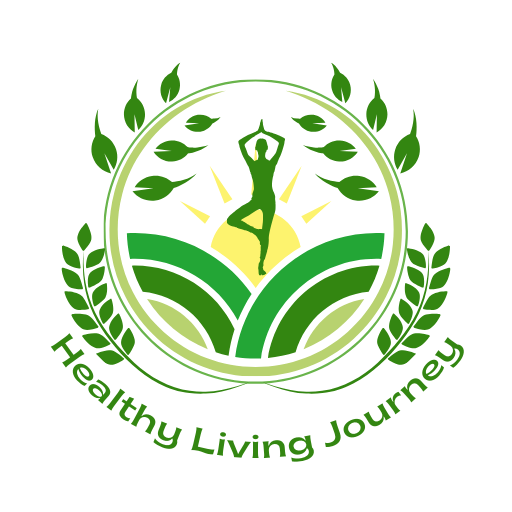

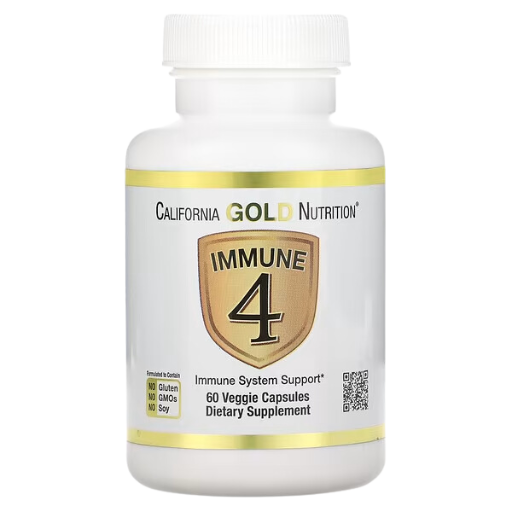
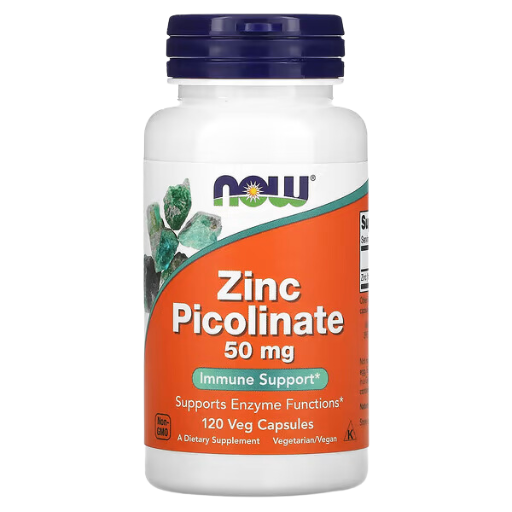
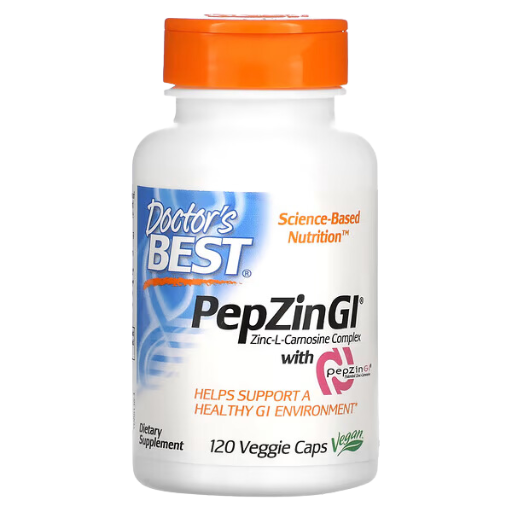
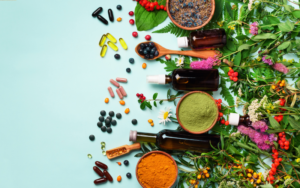
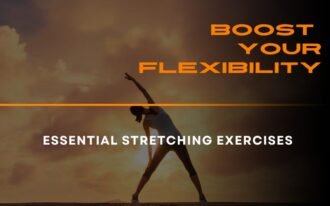
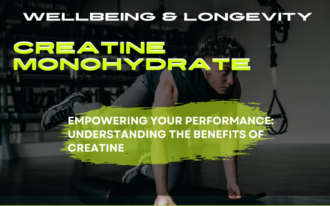
Pingback: Discover the Benefits of Hyaluronic Acid for Skin Health - Healthy Living Journey